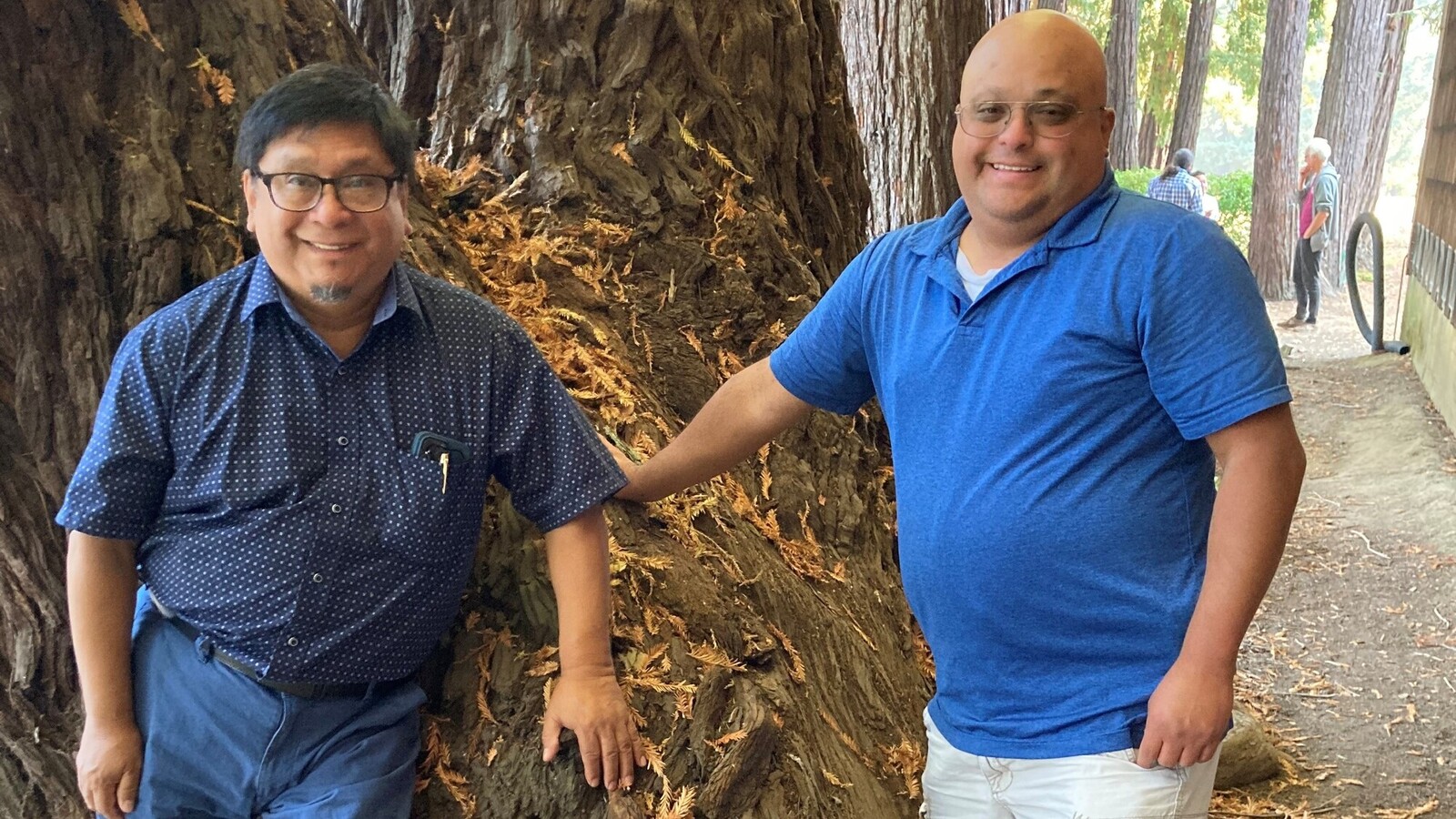
Pedro Sosa, left, and Alonso Oliveros Jon Krieg
Pedro Sosa and Alonso Oliveros of the AFSC Oregon-Washington Immigrant Rights Program recently shared about their work in support of immigrants in Oregon. Below is a portion of that interview – stay tuned for more to come.
Alonso: One of the things we’ve worked on is Sanctuary Promise. There had been a push by anti-immigrant organizations for ballot Measure 105 that would have repealed Oregon’s so-called sanctuary law, which is really more of an anti-racial profiling law. Fortunately the repeal didn’t pass, so Oregon’s sanctuary law is in place.
But the law had no real teeth to it. So we pushed for Sanctuary Promise, which created a hotline in the Oregon Department of Justice where people could report any violations by rogue police actors would commit when sharing information or collaborating with ICE.
This is different from the Portland Immigrant Rights Coalition hotline, which AFSC helps fund. This state hotline is more for reporting violations of Sanctuary Promise, which says that no local law enforcement resources will be used for federal immigration enforcement.
Also at the policy level, we’ve collaborated with Food for All Oregonians, which was a push to extend SNAP and food benefits to everyone, regardless of immigration status. Unfortunately, that didn’t pass, but it’s been good working with our partners to push these policies.
Pedro was also instrumental in supporting the Indigenous Language Justice proposal as well. That passed.
Pedro: Language interpretation in the indigenous community has been a challenge in Oregon. Many immigrants don’t speak Spanish or English, so it’s been hard for them. I’ve been helping people in detention or in the state mental hospitals. I’ve also helped them with lawyers, sometimes at the federal court.
But as interpreters, we’re not certified. That’s a challenge for all indigenous interpreters in Oregon and across the US. Now, thanks to our successful advocacy with the Oregon Legislature, we have $2 million to help pay indigenous interpreters. It’s been a challenge not being paid. But with this money, we’ll be paid for our interpretation.
Unfortunately, this new law does not address certification, which will be part of my work during my upcoming sabbatical. I’ll be going to Guatemala to the school of indigenous language to certify my ability to speak Spanish and K'iche'. Then we can present that to the state of Oregon, to be certified.
The challenge with language is huge. It contributes to a lot of other issues, such as where people can look for help or services. If no one can help this community with interpretation into Spanish, it will be hard for them to have access to health care in an emergency. There’s a lot of impact.
We’ve formed a group, the Collective of Indigenous Interpreters of Oregon. We came together with different languages from Guatemala and Mexico. We’re trying to find people from South America.
Alonso: Another thing regarding the establishment of a certifying board is that lately, because of the increase in the numbers, Pedro has been working with communities from five different towns in Guatemala to try to get the Guatemalan consulate in Portland. Right now, the nearest one is in Seattle. We’ve seen a rising need for it.
Pedro: We’re helping this group of Guatemalans with planning and taking action. They’re already planning to have a meeting with the consulate in Seattle. It looks like the process is going fast to have the consulate in Oregon.
Alonso: A couple years ago, we had wildfires in Oregon, and so people lost their homes and their documentation. Pedro organized a caravan there to provide supplies. There was a great need among the people there for consular IDs. There were so many barriers to getting those documents issued.